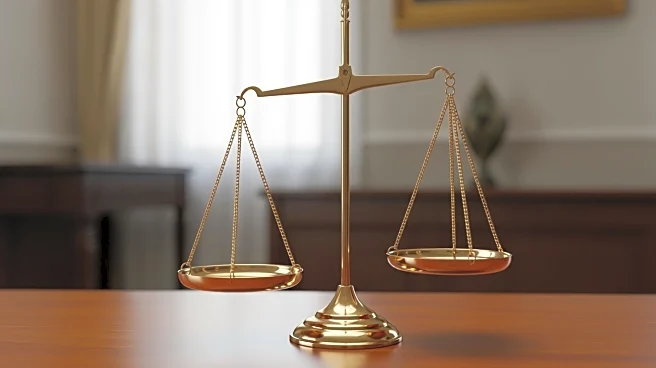What's Happening?
The U.S. Senate is set to vote on legislation aimed at restricting President Trump's ability to initiate military action against Venezuela without congressional approval. This move comes as Democrats push for greater congressional oversight in response
to Trump's campaign against Venezuelan President Nicolás Maduro. The legislation seeks to prevent an attack on Venezuelan soil by requiring congressional authorization first. Despite the low likelihood of the bill being enacted, it serves as a platform for senators to express concerns over Trump's military buildup in the Caribbean, which includes advanced naval forces. The resolution, introduced by Sen. Tim Kaine, reflects a broader frustration among lawmakers regarding the administration's foreign policy decisions.
Why It's Important?
The Senate's vote is significant as it highlights the ongoing debate over presidential military powers and congressional oversight. If passed, the legislation could alter the balance of power between the executive and legislative branches regarding military interventions. The outcome of this vote may influence U.S. foreign policy, particularly in Latin America, and could impact the administration's approach to international conflicts. The resolution also underscores bipartisan concerns about the potential for regime change in Venezuela and the implications of military actions without clear strategic objectives.
What's Next?
Should the legislation pass, it would require President Trump to seek congressional approval before any military action against Venezuela, potentially curbing unilateral executive decisions. The vote may prompt further discussions on the War Powers Resolution and the role of Congress in authorizing military interventions. Additionally, the administration may face increased pressure to justify its military presence in the Caribbean and provide more transparency regarding its objectives.
Beyond the Headlines
The debate over this legislation raises questions about the ethical and legal dimensions of U.S. military interventions. It may lead to a reevaluation of the War Powers Resolution and its effectiveness in ensuring congressional oversight. The situation also highlights the complexities of U.S. foreign policy in Latin America and the potential consequences of military actions on regional stability.















